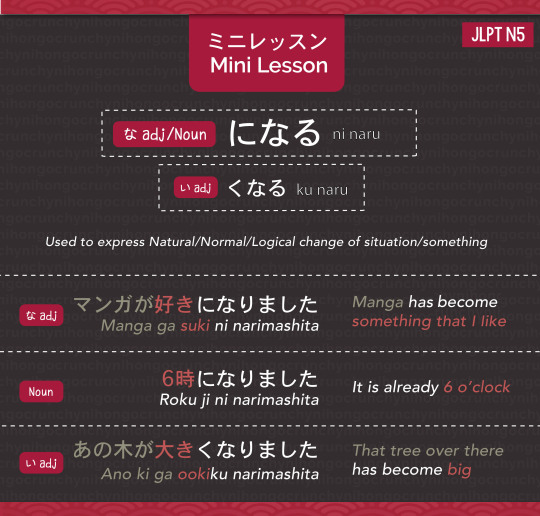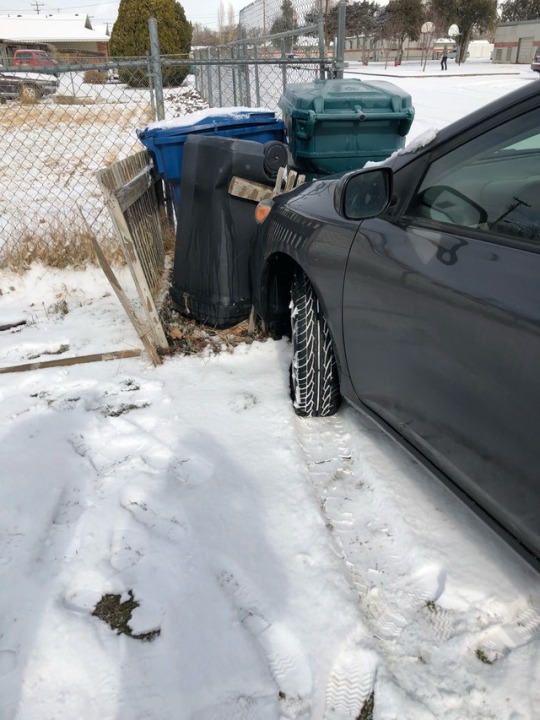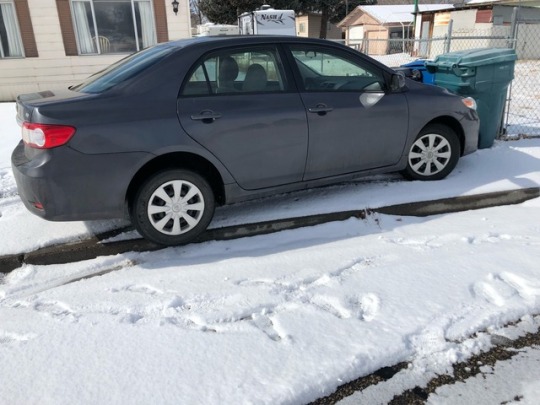Text
N2 Grammar: ~に過ぎない (Quote 3)
にすぎない - nothing more than, merely
Quick reminder of lower leven grammar structures with this word:
N5: ~すぎる - too much of something
This construction can be used with adjectives and verbs to express that something is or was done too much.
For example:
高すぎる (たかすぎる) - something is too expensive
使いすぎる (つかいすぎる) - something is used too much
N4: 過ぎる - to pass/ to go past
This a simple noun and is etremely often used with the passing of time.
For example:
時間が早く過ぎた。(じかんがはやくすぎた) - Time has quickly passed.
But it can also be added to other nouns that indicate movement to express that something or someone has gone past something.
For example:
走り過ぎる (はしりすぎる) - to run past
So, now that we have this out of the way let’s look at the phrase in the last quote I posted (quote 3, you can look up the entire quote on my blog by simply looking “quote 3″ in the search bar). Here the sentence is:
人間はその中の一本の繊維にすぎない
First of all 繊維 is read as せんい and means fiber (I thought of it as a useless word when I first encoutered it at University but it comes up more often than I thought).
Now, if you have understood the previous N4 contrsuction this is a seriously easy N2 piece of grammar to learn as you would use it exactly the way you would in English. Literally translated it means: “A human being does not go beyond (being) a single fiber withing this (this = life)”. To translate it more neatly the translation “A human being is nothing more than a single fiber within this”
So how do you use it? Super simple:
Noun + に過ぎない
Verb (plain form, past or present) + に過ぎない
Let’s add a quick example sentence wor the construction with the verb
日本語を勉強したが、自己紹介できるにすぎない。(I have studied Japanese but I can do nothing more than a self-introduction)
Japanese people also love to use に過ぎない with percentages just like in the following example:
日本語を勉強した割合は6%にすぎない。(The percentage of people that have studied Japanese is not more than 6%.
You can also use it with adjectives but I have never actually heard it this way and resources say that it’s rarely used as well.
If you want to add emphasis, it is possible to add だけ before に過ぎない, which would translate somewhere along the lines of “nothing more than merely”. But I don’t think that the だけ has to be translated unless you have a super picky teacher.
133 notes
·
View notes
Note
What is different between しまった and ちゃた and how to use
しまった and ちゃった are the same. Both are used in informal speech, but it is that the latter that is contracted.
ちゃう is the contracted form of Verbてしまう and じゃう is the contracted form of Verbでしまう。 The masculine version of the two, which is more rough, is the casual ちまう and じまう, respectively.
しまう as a verb means to put away, but when put with the te-form of a verb, it takes on two meanings: (1) an unrecoverable event, often expressing regret for something that shouldn’t have been done or have happened (whether intentionally or unintentionally) and (2) the completion of an action.
机の上のハッチが落ちてしまった 。キャビネットも割れてしまった。
つくえのうえのハッチがおちてしまった。キャビネットもわれてしまった。(Unfortunately) The hutch on top of my desk fell. The cabinet also broke (regrettably).
Previously, I had written these as:
机の上のハッチが落ちちゃった 。キャビネットも割れちゃった。
一昨年行った果樹園に行ったが、花びらが散ってしまっていた。
おととしいったかじゅえんにいったが、はなびらがちってしまっていた。We went to the orchard we’d gone to the year before, but the blossom petals had (unfortunately) fallen to the ground.
一晩で全部のシリーズを見てしまって疲れた。
ひとばんでぜんぶのシリーズをみてしまってつかれた。I watched the whole series in one night, and now I’m tired.
今出たら、バスに乗り遅れちゃうんじゃない?
いまでたら、バスにのりおくれちゃうんじゃない?If you leave now, won’t you miss the bus?
娘は私のミルクシェークを全部飲んじゃった。
むすめはわたしのミルクシェークをぜんぶのんじゃった。My daughter drank all of my milkshake.
宿題をしてしまった。
しゅくだいをしてしまった。I finished my homework.
I hope that hope this is clear.
頑張ってください。
187 notes
·
View notes
Photo

When you see words that cannot be easily translated with dictionary such as “naru”, they are most likely to be grammar patterns!
Note that English translation of Japanese are not a literal translation. But it is a “rephrase of the sentence’s context in English words”. So don’t get fixated with the English choice of tense.
Naru is used to express a natural/normal/logical change of situation/something. So it cannot be used for something that is changed by action of something/someone. The context it holds is : a gradual and natural change from A to B.
On the 1st sentence, the context of the sentence is:
• Due to something, I came to like manga now. (So maybe the person didn’t like it before, and somehow has changed his/her mind)
On the 2nd sentence, the context is:
• It is already 6 o’clock (Time goes by)
On the 3rd sentence:
• That tree is now big (it was small before, it must’ve grown)
Happy learning! 。゚✶ฺ.ヽ(*´∀`*)ノ.✶゚ฺ。
636 notes
·
View notes
Text
Spread the word!
Hear ye! Hear ye!
Langblr selfie day 05/03/2018 (American date)
To clarify it is the third of May. 2018. AD. Gregorian Calendar.
That’s day number three (3) of month number five (5), y'all.
DID EVERYONE HEAR THAT IN THE BACK?!?!
274 notes
·
View notes
Text
Looking for langblrs to follow!
Please reblog this if you have a langblr and you study/post about any of these languages:
Finnish
Japanese
Swedish
German
Hungarian
Arabic
Northern Sami
Ainu
121 notes
·
View notes
Video
Pronunciation Practice! Days of the week in Japanese, German, Finnish, and Spanish
7 notes
·
View notes
Photo


🇯🇵今日、私は車の事故にあった。。。😑氷の上で滑りました。 私は大丈夫ですけど、タイアがバーストしました。😩 ボルトは凍っている(こおる)ので、タイヤを変えられない。そしてダニエルは24時間仕事しなければならない。 車の事故にあったので、ダニエルに電話しました。彼は仕事から抜けて(ぬける)、私の様子(ようす)を見に来てくれました。☺️今、彼は仕事に戻って、私は無事に家にいる。 あそこに住んでいる夫婦(ふうふ)は優しくて承知(しょうち)です。彼らの垣根(かきね)の損害(そんがい)のために、私たちは彼らにお金をあげます。 🇺🇸I got into an accident today...😑I slid on some ice. I’m fine, but my tire busted.😩 The bolts are frozen so I couldn’t change the tire. And Daniel has to work 24 hours. When I got into the accident, I called Daniel. He left work to check on me.☺️ He’s back at work now and I’m home safely. The couple that lives there were very kind and forgiving. We’re going to give them money for the damage to their little fence.
#Japanese#English#language#language journal#language learning#japanese langblr#japanese practice#learning japanese#日本語#英語#にほんご#えいご#日本語で#英語で#Nihongo#Eigo#langblr#studyblr#事故#車
6 notes
·
View notes
Video
youtube
今週の私 #4
パニック障害(しょうがい)と科学の祭りについて
My week #4
Panic Attack and Science Festival
#Language Learning#Learning Japanese#Japanese Practice#Speaking#Speaking challenge#日本語#練習#日本語練習#にほんご#Nihongo#アメリカ人#アメリカン#Language#studyblr#japanese studyblr#langblr#japanese#japanese langblr#blog#vlog#ブログ#動画#ビデオ#ユーチューブ#ユーチューバー#YouTube#YouTuber#purple hair#purple hair dont care
2 notes
·
View notes
Video
今週の私 #3
またしてみています! 今週は忙しくなかった。でも、2冊の本を買いました。デミアンにも本を買いました。 見てくれてありがとうございます!
2 notes
·
View notes
Text
looking for japanese langblrs/studyblrs
still need some more japanese post on my dashboard, so if you post anything that has to do with the japanese language, grammar, vocab, you name it– please reblog this so i can follow you!! <3
152 notes
·
View notes
Video
youtube
私の週 #2
また私は自分にチャレンジしてみています!
My week #2
I’m still trying to challenge myself!
#Youtube#ユーチューブ#ユーチューバー#ビデオ#日本語#にほんご#アメリカ人#アメリカン#studyblr#jstudyblr#langblr#language journal#ジャーナル#journal#ブログ#blog#vlog#purple hair#pink hair#hair dye#Japanese#learning japanese#language learning#language#練習#practice#language practice
12 notes
·
View notes
Video
youtube
🇯🇵先週、私は自分にチャレンジしました。毎日、日本語で話しなければならない!新しい言葉を使いました。 3つビデオを作りました。
🇺🇸Last week I challenged myself. I had to speak Japanese everyday! Using new words. I made 3 videos
#Japanese#English#日本語#英語#にほんご#えいご#日本語練習#Japanese practice#Nihongo#Eigo#American#アメリカ人#ビデオ#ユーチューブ#ユーチューバー#ブログ
6 notes
·
View notes
Video
IG: brittany_elizondo してみた!😭 私の間違いを直してください!🙇🏻♀️ 今年のゴールは8月まで15分日本語で会話を保てる(たもつ)ようにしたいので、今週、もっと日本語で話してみています! I tried!😭 Please correct my mistakes!🙇🏻♀️ My goal this year is, I want to be able to hold a 15 minute conversation in Japanese by August so I’ve been trying to speak more Japanese! • • • #languagelearning #LearningJourney #日本語 #英語 #アメリカ人 #アメリカン #紫髪 #instalanguage #languagegram #English #Japanese #日本語で #英語で #練習中 #練習 #独学
#studyblr#langblr#langblog#language#language learning#learning Japanese#Japanese practice#purple hair#learning journey#English#Japanese#American
2 notes
·
View notes
Photo


今日、私の髪を染めました!
I got my hair dyed today!
17 notes
·
View notes
Text
久しぶりだよ!
先週の木曜日にまた髪を脱色(だっしょく)しました!
次は髪を染めます!ワクワクしています!
紫とピンクのグラデーションです。
紫からピンクに徐々に(じょじょに)変わっていきます。
私の次の予定は今週の水曜日です!
I got my hair bleached again Wednesday last week!
Next session we’ll be adding color! I’m excited!
It will be a purple and pink gradient.
It will fade from purple to pink.
My sext appointment it this week on Wednesday!

#me#my face#language learning#language journal#language#japanese#english#日本語で#日本語#にほんご#えいご#英語で#英語#japanese practice#blond hair
6 notes
·
View notes
Text
My first Japanese class!
So I went to a Japanese class today. Which I have never done. I've been self-studying this language for 4 years now. No tutor, teacher, or class. Which I think it's about time to do because I'm on a learning plateau right now.
The class was very basic beginner stuff but it was interesting and fun. I'll go back. Because it was nice to talk to other people about this language. I like talking to native people, but it's also nice to hear what non-native people think and are going through too.
3 notes
·
View notes
Text
Langblr Asks 1-5
1. What’s your native language? American English
2. How many languages do you speak? Fluently...Just English
3. What language(s) are you currently studying? Japanese, German, Spanish, Korean, and ASL
4. How many/which languages would you like to know in the future? For right now, just these 5. I would like to learn French and Arabic one day.
5. Do your friends speak other languages? Yes! a few. Japanese mostly. I also have friends who speak Finnish. Another that speaks Arabic...
0 notes